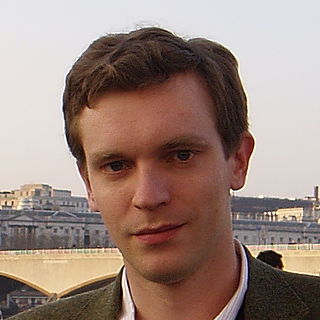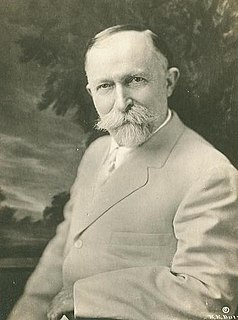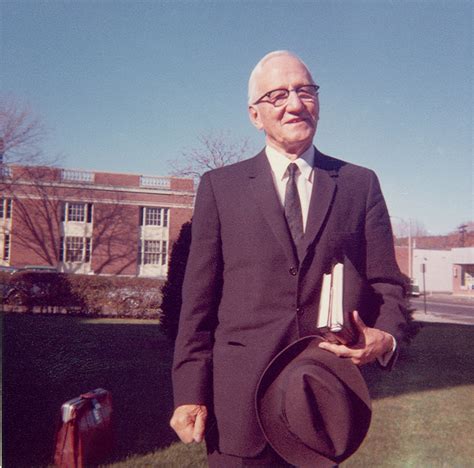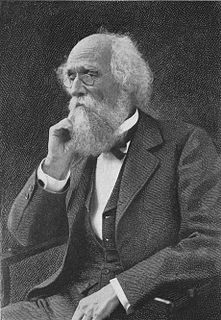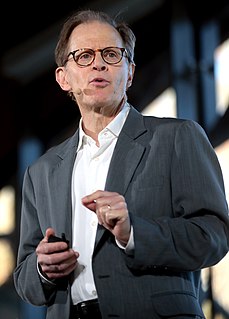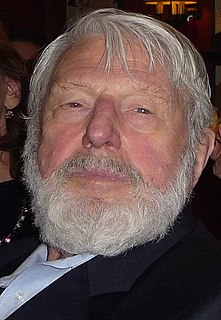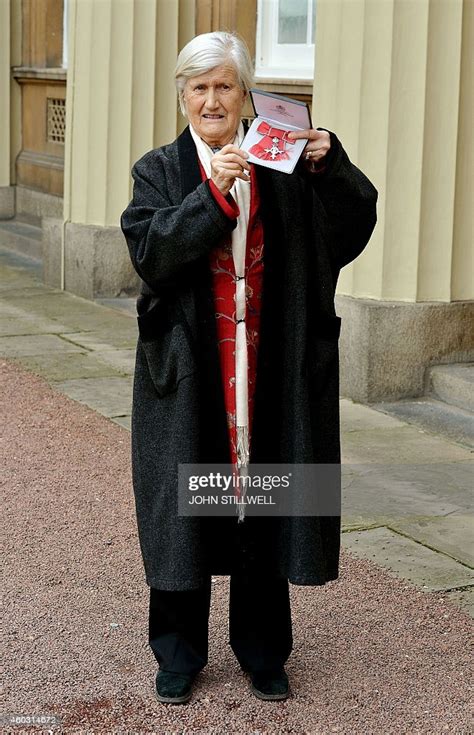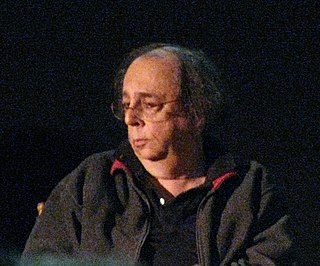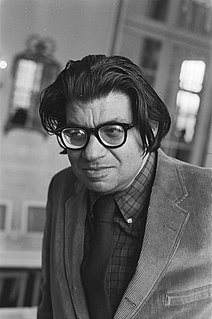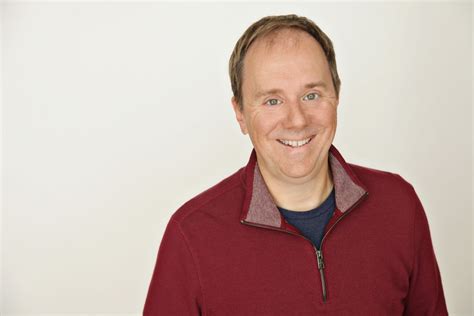Top 547 Constructed Quotes & Sayings - Page 9
Explore popular Constructed quotes.
Last updated on November 15, 2024.
Where there was nature and earth, life and water, I saw a desert landscape that was unending, resembling some sort of crater, so devoid of reason and light and spirit that the mind could not grasp it on any sort of conscious level and if you came close the mind would reel backward, unable to take it in. It was a vision so clear and real and vital to me that in its purity it was almost abstract. This was what I could understand, this was how I lived my life, what I constructed my movement around, how I dealt with the tangible.
But Shakespeare never drank coffee. Nor did Julius Caesar, or Socrates. Alexander the Great conquered half the world without even a café latte to perk him up. The pyramids were designed and constructed without a whiff of a sniff of caffeine. Coffee was introduced to Europe only in 1615. The achievements of antiquity are quite enough to cow the modern human, but when you realize that they did it all without caffeine it becomes almost unbearable.
That one record changed everything for me. After Sgt. Pepper, it's the most influential record in the history of rock and roll. It affected Pink Floyd deeply, deeply, deeply. Philosophically, other albums may have been more important, like Lennon's first solo album. But sonically, the way the record's constructed, I think Music from Big Pink is fundamental to everything that happened after it.
The best passing drill is pass - set - hit. The best setting drill is pass - set - hit. The best hitting drill is pass - set - hit... Anything less than a game situation, unless very well planned, has the possibility of introducing artificial situations, and complete transfer to the game might not occur when drills are constructed in this manner.
I was trying to develop a completely new, nonvoyeuristic approach to the female body as something other than a visual object. I wanted to find out what happened when you leave behind the voyeuristic mode and confront people with reality. But that's what was so interesting for me to discover: People don't want to see reality. It's a pretty simple idea, really, this question of how we deal with reality. When something is constructed, when it's projected onto a screen, it's acceptable, but it's different when it's there in front of you in a public space.
Zeus Is Dead is full of laugh-out-loud moments, lashings of sly wit, moan-worthy puns, and a complex, fast-paced storyline. There aren't very many humorous fantasy murder mysteries out there, especially not as intricately constructed as this one. Michael G. Munz takes a 'What if,' and runs with it like a toddler with Mom's smart phone. The guffaw-worthy throwaway bits will remind you of Douglas Adams. A very enjoyable read.
When people ask me if musical theatre should be taught in music colleges, I reply that there is no need. All anyone needs to study is the second act of La Boheme because it is the most tightly constructed piece of musical theatre that there is. It is practically director-proof: you can't stage it badly because it just works too well. If you can write La Boheme, you can write anything. I would also recommend studying Britten's Peter Grimes.
All the inventions and devices ever constructed by the human hand or conceived by the human mind, no matter how delicate, how intricate and complicated, are simple, childish toys compared with that most marvelously wrought mechanism, the human body. Its parts are far more delicate, and their mutual adjustments infinitely more accurate, than are those of the most perfect chronometer ever made.
One of the reasons that so many people of color and poor people are in prison is that the deindustrialization of the economy has led to the creation of new economies and the expansion of some old ones – I have already mentioned the drug trade and the market for sexual services. At the same time, though, there are any number of communities that more than welcome prisons as a source of employment. Communities even compete with one another to be the site where new prisons will be constructed because prisons create a significant number of relatively good jobs for their residents
In comparing these two writers, he [Samuel Johnson] used this expression: "that there was as great a difference between them as between a man who knew how a watch was made, and a man who could tell the hour by looking on the dial-plate." This was a short and a figurative statement of his distinction between drawing characters of nature and characters only of manners, but I cannot help being of opinion, that the neat watches of Fielding are as well constructed as the large clocks of Richardson, and that his dial plates are brighter.
But as the work proceeded I was continually reminded of the fable about the elephant and the tortoise. Having constructed an elephant upon which the mathematical world could rest, I found the elephant tottering, and proceeded to construct a tortoise to keep the elephant from falling. But the tortoise was not more secure than the elephant, and after some twenty years of very arduous toil, I came to the conclusion that there was nothing more that I could do in the way of making mathematical knowledge indubitable.
I have tons of stuff that, you know, seems like it's a well-constructed sentence but it is not how people talk, it's how people write. So that's why I think it's sometimes easier for me to write for actors 'cause I know what's frustrating about, you know, sentences that come out just perfect. Well, who talks like that? And who of us don't overlap each other? Except on the radio, hopefully.
In Buddhist ideology, the conventional self is that which is constructed in a way by the use of the pronoun, and when you realize there is no absolute ego there, no disconnected one, self, or ego, then that actually strengthens your conventional ego. It does so in the sense that then you realize it's a construction, and you can strengthen it in order to help others, or do whatever you're trying to do, it's not like you no longer know who you are. Then you can organize your behavior by using your ego, as it's now the pronoun.
You might tell me that you have been engaging in some deep questioning and theological rethinking.1 You can no longer live with the faith you inherited from your parents or constructed earlier in your life. As you sort through your dogma and doctrine, you’ve found yourself praying less, less thrilled about worship, scripture, or church attendance. You’ve been so focused on sorting and purging your theological theories that you’ve lost track of the spiritual practices that sustain an actual relationship with God. You may even wonder if such a thing is possible for someone like you.
I try to just put a blank stage in front of them, and say, "This is your space; you tell me where you're coming from and where you're going." At a certain point, it was interesting as the project started to become what it is now, The Source, which has a physical installation and also an online presence. As we started building the installation, I started thinking, "It's really strange that we're building this installation, this piece of architecture you can go into." It's almost strange because I suppose it's an artwork, but it's an artwork that's really constructed out of ideas.
Thus we cannot escape the fact that the world we know is constructed in order to see itself. This is indeed amazing. Not so much in view of what it sees, although this may appear fantastic enough, but in respect of the fact that it can see at all. But in order to do so, evidently it must first cut itself up into a least one state which sees, and at least one other state which is seen.
In terms of bridal dress, I've tried everything. I've tried short, long, deconstructed, constructed, bustiers, working in fabrics, working in color. I've been working in color in bridal for probably 15 years. Who else would do an entire collection dipped in tea? I did that one year. My design team dipped every single dress in tea in a bathtub. I did that just because I wanted to work out of the vocabulary of white.
If you want to be a fiction writer, you need to start reading like a fiction writer. To do so, you need to learn about craft so that the next time you pick up a contemporary short story, you're reading it not as an abstraction floating in formaldehyde, existing simply for the theorist's dull scalpel to saw on, but as a concrete thing constructed out of words and shaped by syntax, brought to life by a writer who made several thousand choices, some large, some small, before letting that imperfect beauty, the story, walk on its own two feet.
There are significant relationships, of course, between wanting things and caring about them..The notion of caring is in large part constructed out of the notion of desire. Caring about something may be, in the end, nothing more than a certain complex mode of wanting it. However, simply attributing desire to a person does not in itself convey that the person cares about the object he desires.
A Johns Hopkins doctor says that 'we do not know why it is that the worriers die sooner than the non-worriers, but that is a fact.' But I, who am simple of mind, think I know we are inwardly constructed, in nerve and tissue and brain cell and soul, for faith and not for fear. God made us that way. Therefore, the need of faith is not something imposed on us dogmatically, but it is written in us intrinsically. We cannot live without it. To live by worry is to live against Reality.
There isn't much point arguing about the word "libertarian." It would make about as much sense to argue with an unreconstructed Stalinist about the word "democracy" - recall that they called what they'd constructed "peoples' democracies." The weird offshoot of ultra-right individualist anarchism that is called "libertarian" here happens to amount to advocacy of perhaps the worst kind of imaginable tyranny, namely unaccountable private tyranny. If they want to call that "libertarian," fine; after all, Stalin called his system "democratic." But why bother arguing about it?
Ultimately, Leibniz argued, there are only two absolutely simple concepts, God and Nothingness. From these, all other concepts may be constructed, the world, and everything within it, arising from some primordial argument between the deity and nothing whatsoever. And then, by some inscrutable incandescent insight, Leibniz came to see that what is crucial in what he had written is the alternation between God and Nothingness. And for this, the numbers 0 and 1 suffice.
At first I was very anxious about starting Twitter, because I didn't really know what was expected of me. I now feel fairly relaxed, in that's it a way of telling people things that you are doing, without any attempt to be entertaining. To me, even funny people who are tweeting, it just gives a glib impression. You know that it's been constructed, that it's not a thing that's just happened in that moment. So whatever you read, the best you get is, "Eh."
Apollo at Delphi, through the oracular utterance of his priestess, pronounced Socrates the wisest of men. Of him it is related that he said with sagacity and great learning that the human breast should have been furnished with open windows, so that men might not keep their feelings concealed, but have them open to the view. Oh that nature, following his idea, had constructed them thus unfolded and obvious to the view.
Ever since the Reformation, the case of legislation confining Catholics had been constructed primarily to protect a nervously Protestant against what was assumed to be a fifth column in its midst... Ministers believedm with some justice, that Catholics retained an attachment to their exiled co-religionists, the princes of the House of Stuart. After the Battle of Culloden had confirmed Jacobitism's insignificance, however, government attitudes towards Catholicism began perceptibly and logically to relax.
To ask about the 'source' of rights or morals assumes an erreous conclusion. To ask about the source of morals is to assume that such a source exists. As if it existed outside of human constructed systems. The 'source' is the human ability to learn from experience and to entrench rights in our laws and in our consciousness. Our rights come from our long history of wrongs.
In the current situation with criminalization, we've created situations where sex workers have very little power and control over their lives. Increasing one group of women's power and control over their lives does not take anything away from other women. When a woman's value has been constructed as keeping a man and keeping him faithful, then when he's not we've been taught to internalize that there's something wrong with us.
The female body has always been a construction. Even feminist art of the 1970s fashioned a body in accordance with its own ideas, and in this regard it was a form of manipulation too. Subsequently, we've had to engage with a lot of things that we used to disavow as manipulation. We can't just dismiss everything as manipulations anymore, since the alternatives are constructions, too. From our perspective, from this corner of the planet, we have to admit that it's all constructed. There is absolutely no nature. Nature is one of the biggest constructions.
One: There is a low limit of weight [of about] 50 pounds beyond which it is impossible for an animal to fly. Two: The animal machine is far more effective than any we can hope to make. Three: The weight of any machine constructed for flying, including fuel and engineer, cannot be less than three or four hundred pounds. Is it not demonstrated that a true flying machine, self-raising, self-sustaining, self-propelling, is physically impossible?
Internal mental experience is not the product of a photographic process. Internal reality is in fact constructed by the brain as it interacts with the environment in the present, in the context of its past experiences and expectancies of the future. At the level of perceptual categorizations, we have reached a land of mental representations quite distant from the layers of the world just inches away from their place inside the skull. This is the reason why each of us experiences a unique way of minding the world. (pp. 166-167)
Culture gives us each a sense that life has meaning and that we have value - by offering us assurances of immortality. Either literally, through the heavens, the soul's afterlives or reincarnation, or by the prospect that some vestige of ourselves will persist over time - from having kids, amassing great fortunes or producing great works of art or science. Yet no culturally constructed symbolic belief system is ever powerful enough to completely eradicate the anxiety that is engendered by the awareness of death.
There may be rhetoric about the socially constructed nature of Western science, but wherever it matters, there is no alternative. There are no specifically Hindu or Taoist designs for mobile phones, faxes or televisions. There are no satellites based on feminist alternatives to quantum theory. Even that great public sceptic about the value of science, Prince Charles, never flies a helicopter burning homeopathically diluted petrol, that is, water with only a memory of benzine molecules, maintained by a schedule derived from reading tea leaves, and navigated by a crystal ball.
Child psychologists have demonstrated that our minds are actually constructed by these thousands of tiny interactions during the first few years of life. We aren't just what we're taught. It's what we experience during those early years - a smile here, a jarring sound there - that creates the pathways and connections of the brain. We put our kids to fifteen years of quick-cut advertising, passive television watching, and sadistic video games, and we expect to see emerge a new generation of calm, compassionate, and engaged human beings?
When we try to imagine what God is like we must of necessity use that-which-is-not- God as the raw material for our minds to work on; hence whatever we visualize God to be, He is not, for we have constructed our image out of that which He has made and what He has made is not God. If we insist upon trying to imagine Him, we end with an idol, made not with hands but with thoughts; and an idol of the mind is as offensive to God as an idol of the hand.
We're stuck. We're stuck between the East and the West. Between the past and the future. On the one hand there are the secular modernists, so proud of the regime they constructed, you cannot breathe a critical word. They've got the army and half of the state on their side. On the other hand there are the conventional traditionalist, so infatuated with the Ottoman past, you cannot breathe a critical word. They've got the general public and the remaining half of the state on their side.
I have tried, with little success, to get some of my friends to understand my amazement that the abstraction of integers for counting is both possible and useful. Is it not remarkable that 6 sheep plus 7 sheep makes 13 sheep; that 6 stones plus 7 stones make 13 stones? Is it not a miracle that the universe is so constructed that such a simple abstraction as a number is possible? To me this is one of the strongest examples of the unreasonable effectiveness of mathematics. Indeed, I find it both strange and unexplainable.
We can speak of politics, ethics, and in this way, speak about the world. But at the same time, it's always in a way that is totally nebulous and abstracted, this way of thinking about reality. And that's why I write the way I do - it's an almost immortal way to show dependence on the biological, the political, the moral parts of us. I say immortal because we now have to find new formats, new eloquences, and resolve within ourselves this "constructed" life, a life that is incomplete, imperfect.
I refuse to do shows that are narrowly constructed, that appeal to only one sentiment. I do a lot of Jewish material in front of non-Jews and a lot of non-Jewish material in front of Jews on the simple theory that the non-Jews are entitled to a glimpse of a Jewish world and the Jews are entitled to a glimpse of the world.
Gender is not something that one is, it is something one does, an act... a "doing" rather than a "being". There is no gender identity behind the expressions of gender; that identity is performatively constituted by the very "expressions" that are said to be its results. If the immutable character of sex is contested, perhaps this construct called 'sex' is as culturally constructed as gender; indeed, perhaps it was always already gender, with the consequence that the distinction between sex and gender turns out to be no distinction at all.
The test of a round character is whether it is capable of surprising in a convincing way. If it never surprises it is flat. Flat characters ... in their purest form ... are constructed round a single idea or quality; when there is more than one factor to them, we get the beginning of the curve toward the round. The really flat character can be experessed in one sentence such as, "I will never desert Mr Micawber." There is Mrs Micawber - she says she won't desert Mr Micawber; she doesn't, and there she is.
The first western gardens were those in the Mediterranean basin. There in the desert areas stretching from North Africa to the valleys of the Euphrates, the so-called cradle of civilization, where plants were first grown for crops by settled communities, garden enclosures were also constructed. Gardens emphasized the contrast between two separate worlds: the outer one where nature remained awe-inspiringly in control and an inner artificially created sanctuary, a refuge for man and plants from the burning desert, where shade trees and cool canals refreshed the spirit and ensured growth.
In the beginning of the book, The Miraculous Journey of Edward Tulane, Edward is more enamored of himself than he is of anybody else. He's a very fine rabbit; he's been constructed incredibly well, and he has a wardrobe of amazing clothing. He's arrogant, and he doesn't care whether Abilene loves him or not. As the journey progresses, as he gets passed from hand to hand, he learns what it means to love. He gets more and more bedraggled, and his clothing is lost; yet he becomes finer in soul and heart than he was at the beginning of the journey.
A writer's life is a highly vulnerable, almost naked activity. We don't have to weep about that. The writer makes his choice and is stuck with it. But it is true to say that you are open to all the winds, some of them icy indeed. You are out on your own, out on a limb. You find no shelter, no protection - unless you lie - in which case of course you have constructed your own protection and, it could be argued, become a politician.
Part of what we want to do with the Heroic Imagination Project is to get kids to think about what it means to be a hero. The most basic concept of a hero is socially constructed: It differs from culture to culture and changes over time. Think of Christopher Columbus. Until recently, he was a hero. Now he's a genocidal murderer! If he were alive today, he'd say, "What happened? I used to be a hero, and now people are throwing tomatoes at me!
I come from a tradition of Western culture, in which the ideal (my ideal) was the complex, dense, and 'cathedral-like' structure of the highly educated and articulate personality--a man or woman who carried inside themselves a personally constructed and unique version of the entire heritage of the West. [But now] I see within us all (myself included) there placement of complex inner density with a new kind of self--evolving under the pressure of information overload and the technology of the 'instantly available.'
I will build a car for the great multitude. It will be large enough for the family, but small enough for the individual to run and care for. It will be constructed of the best materials, by the best men to be hired, after the simplest designs that modern engineering can devise. But it will be so low in price that no man making a good salary will be unable to own one - and enjoy with his family the blessing of hours of pleasure in God's great open spaces.
Rebellion against technology and civilization is real rebellion, a real attack on the values of the existing system. But the green anarchists, anarcho-primitivists, and so forth (The "GA Movement") have fallen under such heavy influence from the left that their rebellion against civilization has to great extent been neutralized. Instead of rebelling against the values of civilization, they have adopted many civilized values themselves and have constructed an imaginary picture of primitive societies that embodies these civilized values.
The scientist is not responsible for the laws of nature. It is his job to find out how these laws operate. It is the scientist's job to find the ways in which these laws can serve the human will. However, it is not the scientist's job to determine whether a hydrogen bomb should be constructed, whether it should be used, or how it should be used. This responsibility rests with the American people and with their chosen representatives.
I'd thought I'd constructed a really wonderful book, and the teacher told me that my story basically began on page fifty, and that I should throw out everything prior, or figure out a way to weave only the most important information back into the story, and keep the action moving forward. Wow. That was a really humbling experience. A real eye-opener. Made me realize there are so many aspects involved with telling a story.
We, however, want to become those we are--human beings who are new, unique, incomparable, who give themselves laws, who create themselves. To that end we must become the best learners and discoverers of everything that is lawful and necessary in the world: we must become physicists in order to be able to be creators in this sense--while hitherto all valuations and ideals have been based on ignorance of physics or were constructed so as to contradict it. Therefore: long live physics! And even more so that which compels us to turn to physics--our honesty!
It appears to me that the subject of music, from Machaut to Boulez, has always been its construction. Melodies of 12-tone rows just don't happen. They must be constructed....To demonstrate any formal idea in music, whether structure or stricture, is a matter of construction, in which the methodology is the controlling metaphor of the composition...Only by 'unfixing' the elements traditionally used to construct a piece of music could the sounds exist in themselves--not as symbols, or memories which were memories of other music to begin with.
Now there are heavy houses everywhere and more of them are being built. In fact, it is only when more houses are being constructed that some countries consider their economics healthy. Yet each house is a heavy footprint on the Earth. Just as all our possessions represent-if we cannot learn ways of sharing them-a weight and clutter that often means the faces of future generations will look up into darkness and the pressure on the Earth of "things."
What of miniature boats constructed of birch bark and fallen leaves, launched onto cold water clear as air? How many fleets were pushed out toward the middles of ponds or sent down autumn brooks, holding treasures of acorns, or black feathers, or a puzzled mantis? Let those grassy crafts be listed alongside the iron hulls that cleave the sea, for they are all improvisations built from the daydreams of men, and all will perish, whether from the ocean siege or October breeze.
If we wish to know about a man, we ask 'what is his story--his real, inmost story?'--for each of us is a biography, a story. Each of us is a singular narrative, which is constructed, continually, unconsciously, by, through, and in us--through our perceptions, our feelings, our thoughts, our actions; and, not least, our discourse, our spoken narrations. Biologically, physiologically, we are not so different from each other; historically, as narratives--we are each of us unique.
... [L]ess than at any time does a simple reproduction of reality tell us anything about reality. A photograph of the Krupp works or GEC yields almost nothing about those institutions. Reality proper has slipped into the functional. The reification of human relationships, the factory, let's say, no longer reveals these relationships. Therefore something has to be constructed, something artificial, something set up.
I can tell when I've met a bad journalist when they say, "I've met Madonna," or "I know Marilyn Manson." Because I haven't met anyone I've ever interviewed. I've sat down in the position of an interviewer, and they've sat down in the position of an artist trying to promote a product. We have no relationship. I'm able to ask them questions I'd never be allowed to ask them if we were casual friends. It's a completely constructed kind of situation.
Everything has to be intrinsic plot-wise in the same way, to use the Linda Williams analogy but to move it on a bit, as musicals - in old musicals, like in an old Cole Porter musical, you get the action, then they do a song, which reflects a moment - everything stops while that is being sung - and then you restart. These days in most musicals, the plot keeps moving through the song. I think it would be nice if someone constructed some pornography where the sex continues to propel you through the story.
We can see from the experience of Odin that the image of the tree was the template within which all of the sacred world could be apprehended. The tree was the framework within which one "flew" to these Otherworlds. And since the exploration of sacred space was also a quest into the nature of human consciousness, the tree was regarded as an image of the ways in which we, humans, are constructed psychically. It was a natural model for our deepest wisdom, our highest aspirations.
I love love
I love being in love
I don't care what it does to me
The Format, in "Inches and Failing".
Masood, a young lady has fallen in love with me-at least so I judge from her letters. Awkward is it not-awkward and surprising. You would be flattered and twirl your moustache, but I am merely uncomfortable. I wish she would stop, as she is very nice, and I enjoyed being friends. What an ill constructed world this is! Love is always being given where it is not required.

